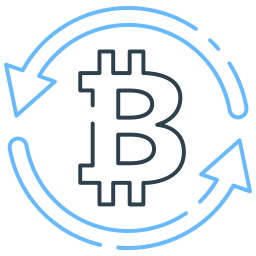Unlocking Scalability Solutions for Blockchain Technology with Solana
The advent of blockchain technology has revolutionized the way we think about data management and security. However, one of the major limitations of blockchain technology is its scalability. As the demand for decentralized applications (dApps) and cryptocurrency transactions continues to grow, the need for scalable solutions becomes increasingly important. In this article, we will delve into Solana’s scalability solutions for blockchain technology and explore how it can help unlock the full potential of blockchain.
Solana is a fast-growing blockchain platform that has gained significant attention in recent years due to its innovative architecture and scalability solutions. The platform uses a novel consensus algorithm called Proof of History (PoH) and a novel transaction validation method called Sequential Consensus, which enable it to achieve high transaction throughput and low latency.
One of the key benefits of Solana’s scalability solutions is its ability to process transactions at a rate of 65,000 TPS (transactions per second), which is significantly higher than many other blockchain platforms. This makes it an attractive option for dApps that require high performance and low latency.
Another advantage of Solana’s scalability solutions is its energy efficiency. The platform uses a novel consensus algorithm called PoH, which requires much less energy than traditional proof-of-work (PoW) algorithms used by many other blockchain platforms. This makes it an attractive option for applications that require high performance and low energy consumption.
Solana’s scalability solutions also enable the creation of complex smart contracts and decentralized applications. The platform uses a novel programming language called Rust, which is designed to be highly performant and secure. This enables developers to build complex dApps that can process large amounts of data quickly and efficiently.
Another key aspect of Solana’s scalability solutions is its integration with other blockchain platforms. The platform supports multiple blockchain protocols, including Ethereum and Binance Smart Chain, which enables seamless interoperability between different blockchain networks.
Solana’s scalability solutions also enable the creation of decentralized finance (DeFi) applications. The platform uses a novel oracle system that provides real-time data from external sources, such as financial institutions and government agencies. This enables DeFi applications to provide accurate and reliable information to users.
Furthermore, Solana’s scalability solutions enable the creation of gaming applications. The platform uses a novel game engine called Solana Game Engine (SGE), which provides high-performance graphics and low latency. This enables developers to build complex gaming applications that can process large amounts of data quickly and efficiently.
Solana’s scalability solutions also enable the creation of social media applications. The platform uses a novel content delivery network (CDN) that provides fast and reliable access to user-generated content. This enables developers to build complex social media applications that can process large amounts of data quickly and efficiently.
In conclusion, Solana’s scalability solutions for blockchain technology are designed to unlock the full potential of blockchain by providing high-performance, low-latency, and energy-efficient transactions. The platform’s innovative architecture and novel consensus algorithms enable it to achieve record-high transaction throughput and low latency. As the demand for decentralized applications and cryptocurrency transactions continues to grow, Solana is well-positioned to provide scalable solutions that meet the needs of this growing market.
Tags: blockchain scalability solana proof-of-history sequential-consensus decentralized-applications cryptocurrency-decentralized-applications cryptocurrency-transactions



